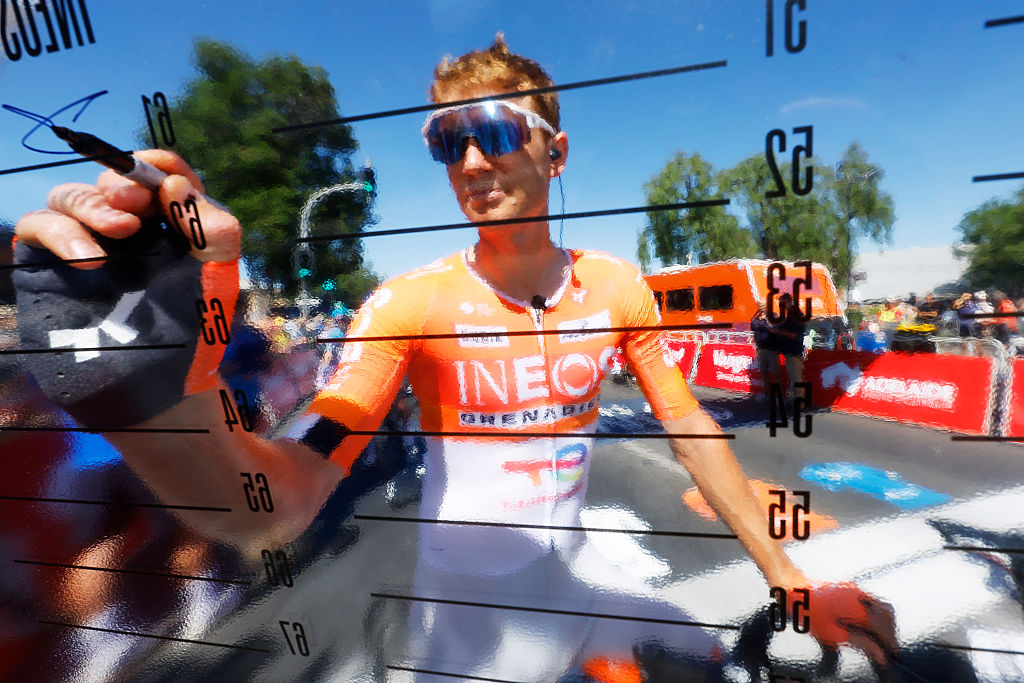Team Ineos switch Vuelta a Espana focus to stage wins after time losses for two leaders
Geoghegan Hart and Poels both lost nearly 10 minutes on stage 2
The latest race content, interviews, features, reviews and expert buying guides, direct to your inbox!
You are now subscribed
Your newsletter sign-up was successful
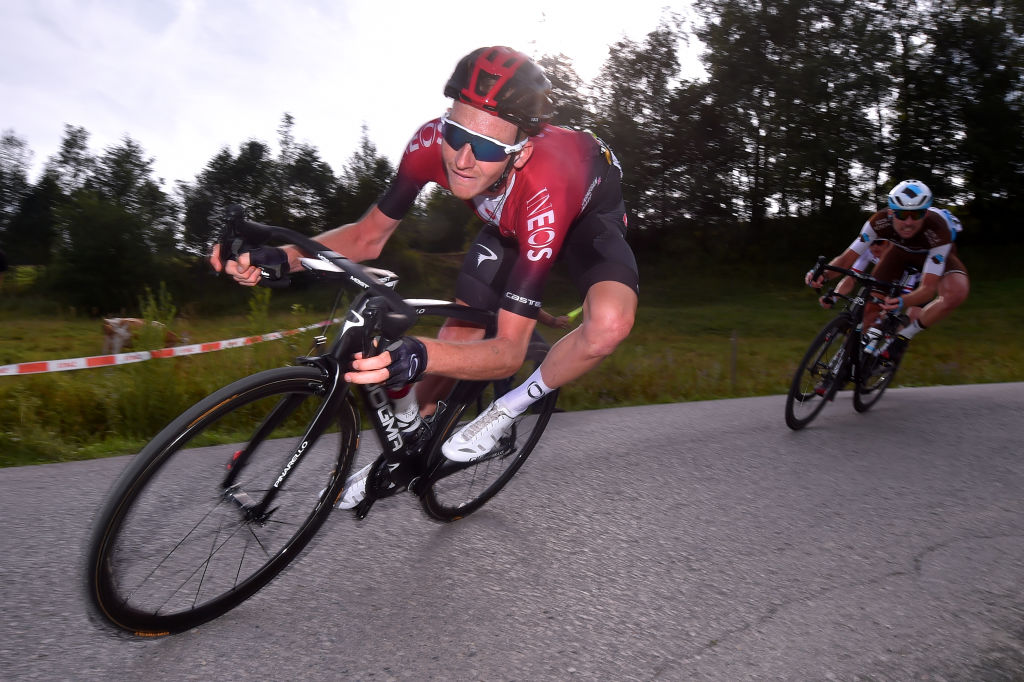
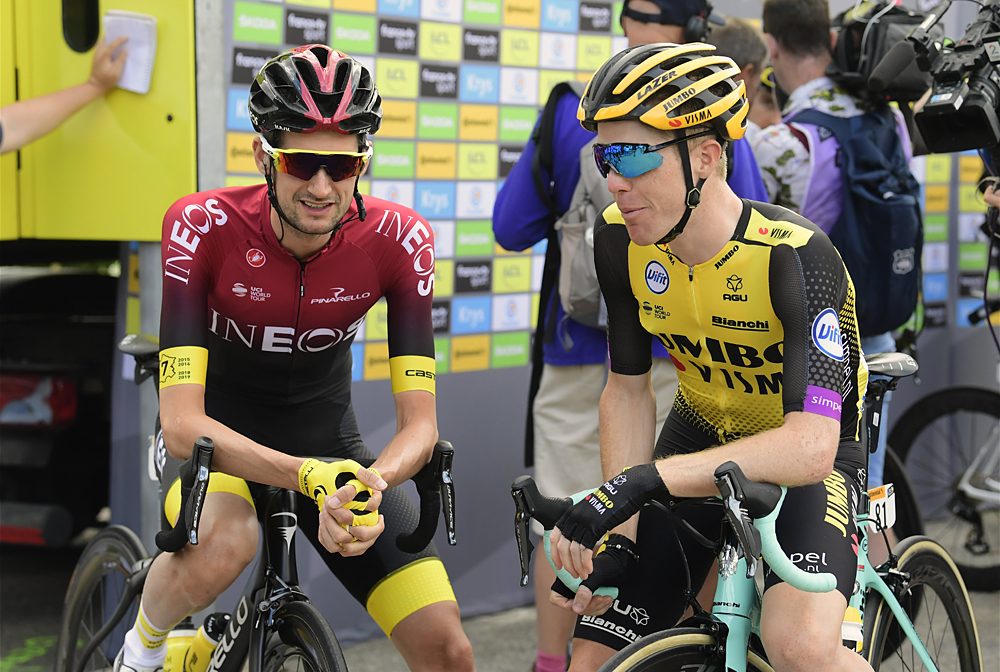
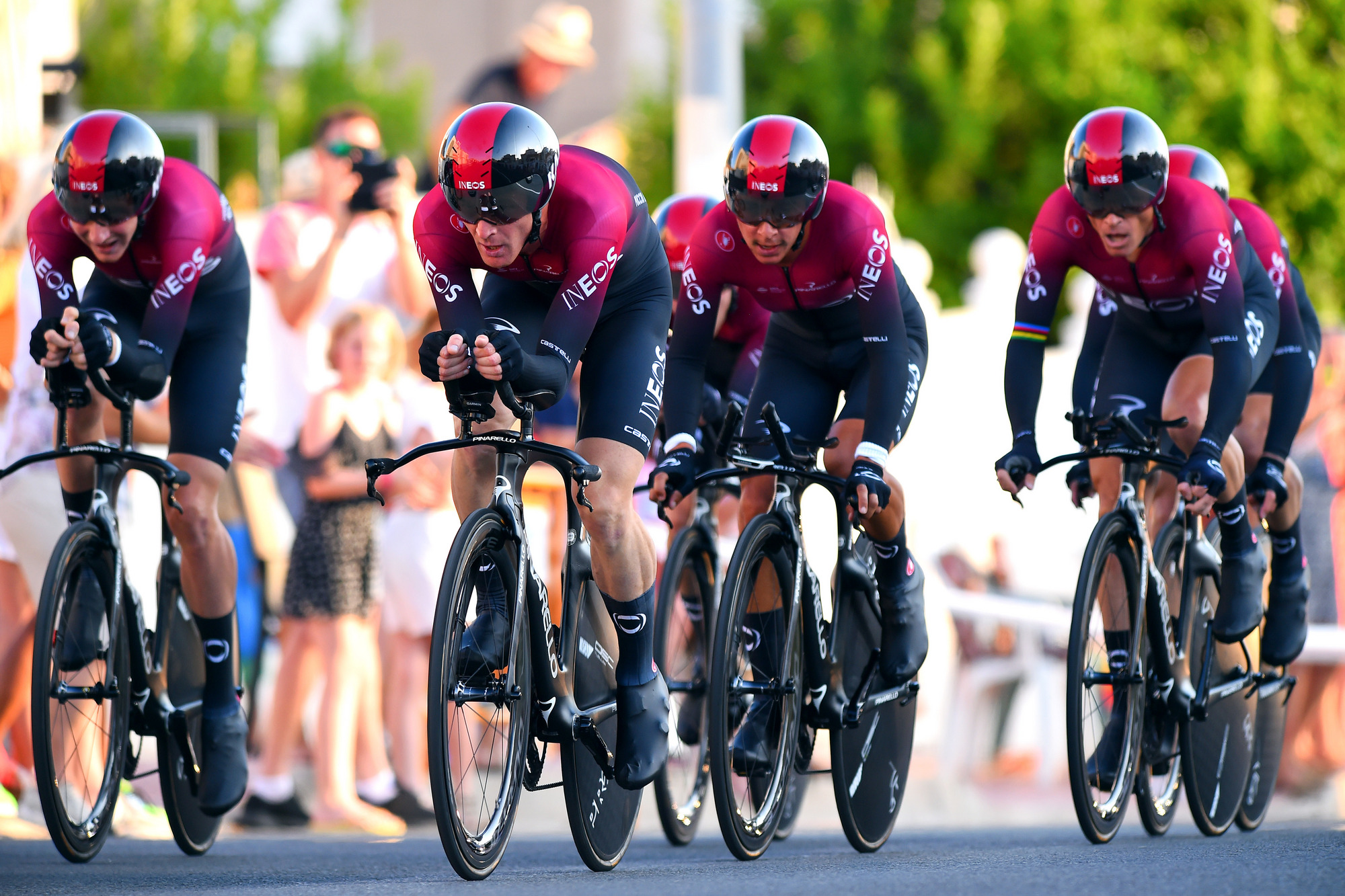
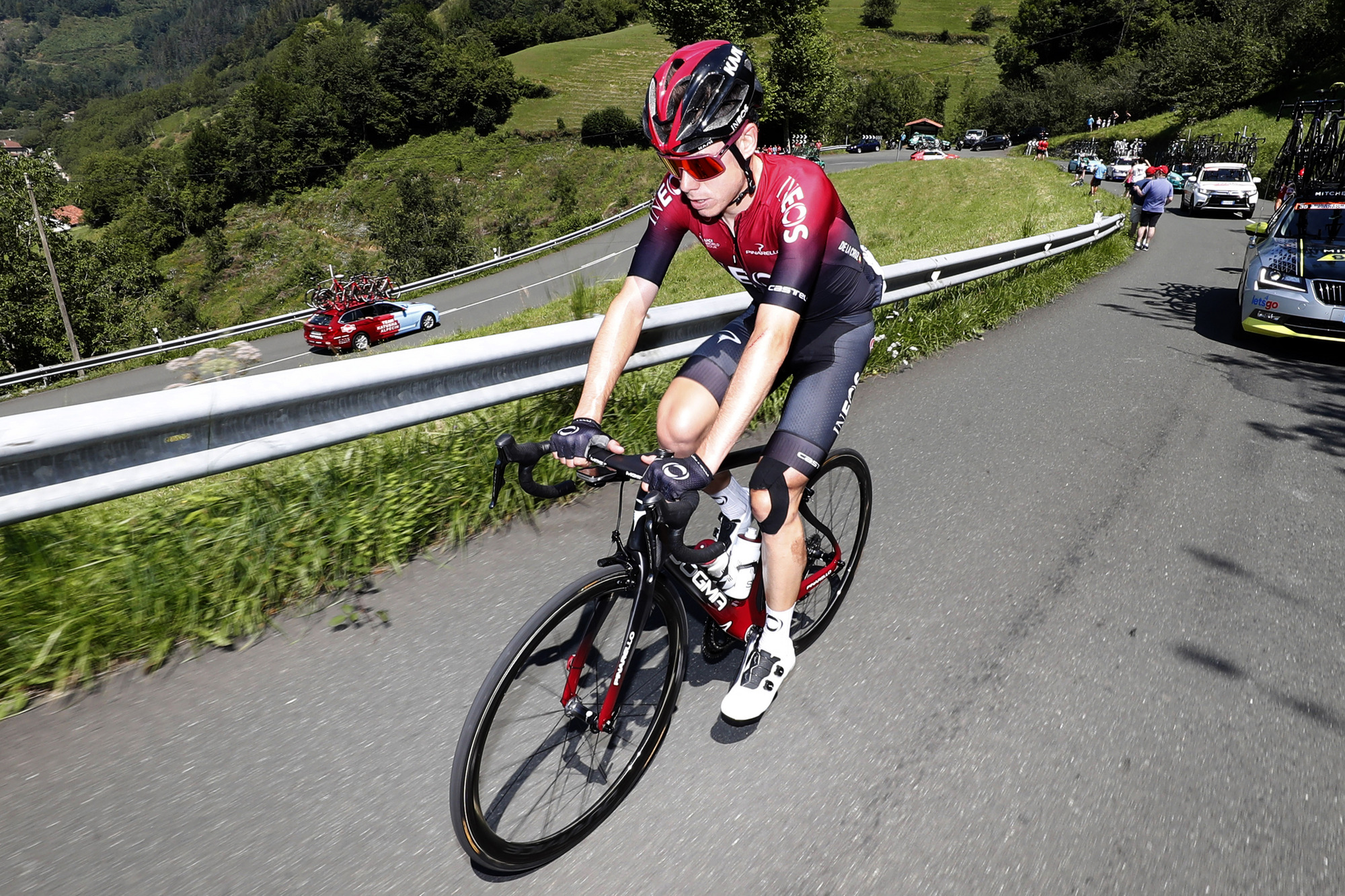
It was pure coincidence that Team Ineos and Movistar, the winning teams in the Giro d'Italia and Tour de France this year, had their buses parked next to each other at the stage start of the Vuelta a España in Ibi on Monday.
But the difference in atmosphere outside the buses could not have been greater - and so too, since Sunday, are the two teams' objectives in the Vuelta.
Outside the Movistar team vehicle, hordes of Colombian fans gathered around the edges of crash barriers, and when stage 2 winner Nairo Quintana emerged to head for the sign-on, a deafening cheer rolled up and down the boulevard where the buses were parked.
Just a few metres away at Ineos, in stark contrast, team staff sat on pavement or stood quietly chatting in a semi-circle at one end of the bus whilst barely half a dozen fans stood half-way along waiting for the riders to emerge. Mostly what could be heard, in fact, were the cheers and applause from the Movistar crowd.
The distance between the two Grand Tour-winning teams might have been a short one physically on Monday morning in the Vuelta but in terms of race objectives, they are now miles apart.
That's because after stage 2's victory for Quintana, the Colombian is clearly in the thick of the GC battle. In contrast, for Ineos, whose two protected riders, Tao Geoghegan Hart and Wout Poels, crossed the line on Sunday's turbulent stage nearly ten minutes down, any overall ambitions for the Briton and Dutchman have now gone up in smoke.
As for what actually happened on stage 2, sports director Nico' Portal told a small group of reporters on Monday, "we don't want to hide anything, there is no point in looking for excuses.
The latest race content, interviews, features, reviews and expert buying guides, direct to your inbox!
"Yes it was hot, but it wasn't that hot. And yes it was hard, but not that hard." Neither rider, it later emerged, had been ill, either.
"The guys were up there at the foot of the climb. They expected much more than what they got, but it is what is."
Ineos do have De La Cruz and Salvatore Puccio currently orbiting in the outer reaches of the GC battle, both at just over two minutes on race leader Nicolas Roche (Team Sunweb). But for Geoghegan Hart and Poels, the GC is out the window, one reporter suggested.
"Yes, it does look like that. David is OK, and he wants to see if he can get better. Two minutes is not so bad. A good break or a good stage and he can move up. But for Wout and Tao, it's a different scenario."
Goeghegan Hart had, pre-race, refused to specify whether he would be going for stage wins of the GC, saying it depended on how he felt on the day-by-day. But in any case, as Portal said, both the Briton's goals and Poels are now strictly reduced to the former.
"We didn't come here with big expectations to win the Vuelta, rather it's similar to how we were in the Giro d'Italia after Egan [Bernal] crashed out and we turned to the young riders like Pavel [Sivakov] and Tao to see what they could do." In the Giro, Sivakov finished ninth overall, whilst Geoghegan Hart was much more unlucky - he suffered multiple crashes and abandoned on stage 13.
Fast forward three months and "In the Vuelta we are here to support Tao and Wout, Tao specially because he's young and wanted to have a chance after his Giro," Portal added.
"Wout was not supposed to be doing the Vuelta but after the Tour his training went well and so we thought it'd be a good idea."
But for Geoghegan Hart, who changed his 2019 Vuelta approach path compared to 2018, where he came into the Spanish race overcooked, the situation was particularly disappointing, Portal agreed.
"It's a pity. In Poland he was going very well,"- finishing fifth overall - "and didn't push so hard, and normally he'd be doing the GC here. Particularly because he felt very good in the TTT."
"Obviously it's hot here, but it's not 37 degrees like it was in the Tour last year. He's been sleeping well, his weight's fine. But that's sport, and one of its attractions - you don't always know why something happened.
"We're going to try and find out what happened, inside the team, use our data and see what we can discover. But it's complicated. Sometimes there are answers to questions that you just can't find."
Alasdair Fotheringham has been reporting on cycling since 1991. He has covered every Tour de France since 1992 bar one, as well as numerous other bike races of all shapes and sizes, ranging from the Olympic Games in 2008 to the now sadly defunct Subida a Urkiola hill climb in Spain. As well as working for Cyclingnews, he has also written for The Independent, The Guardian, ProCycling, The Express and Reuters.

